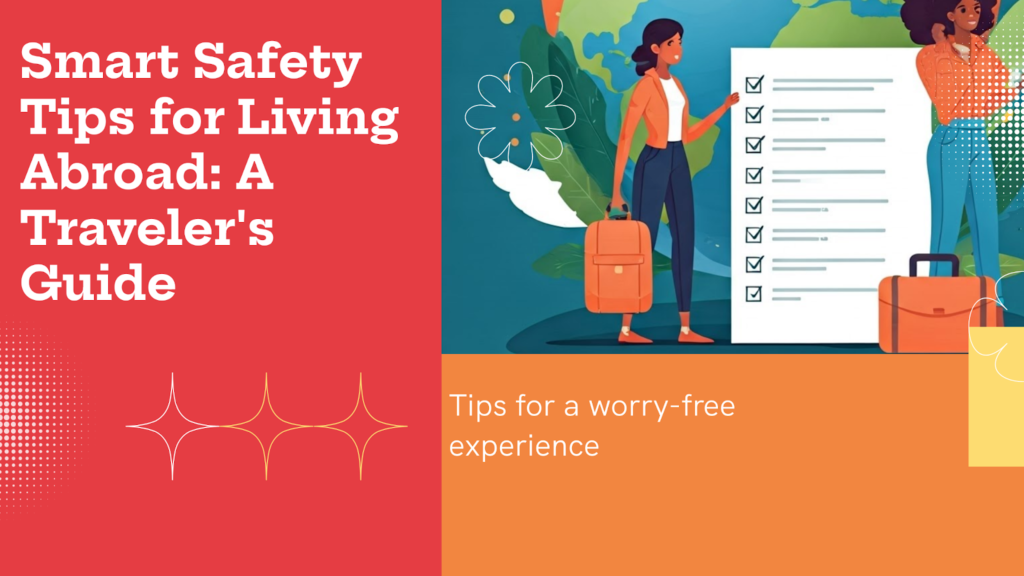Though living abroad is a very exciting activity, full of new insights and unique experiences, one should not forget about safety to enjoy all the colors of new cultures. When relocating to a bustling city like Singapore, where modernity meets tradition, ensuring your safety becomes even more crucial. Here he goes with an in-depth guide of necessary tips to be able to enjoy his time abroad with security.
1. Conduct Thorough Research Before Relocation
Before you pack your bags, arm yourself with knowledge about your destination. This preparation can make a difference in your safety and overall experience.
Understand Local Laws and Customs
Did you know that understanding local laws and customs in Singapore is crucial for your safety? This staggering statistic highlights the importance of research. Take time to learn about:
- Legal drinking age
- Appropriate dress codes
- Gestures or behaviors that might be considered offensive
- Local laws that differ significantly from your home country
“When in Rome, do as the Romans do.” This age-old adage is more than just a saying—it’s a crucial safety tip for travelers.
Identify Safe and Unsafe Areas
A crime victim overseas, one in every four of the traveling public, leads to the major concern of pickpocketing. In general, protect yourself through the use of reliable travel guides and online forums; this will establish areas to consider safe. Be informed on local current crime patterns and avoid dangerous areas, especially after dark. Also, ask locals or some expatriate groups about the latest safety advice.
Health Precautions
Your health is your wealth, especially when you’re far from home. Travelers who don’t seek pre-travel health advice are twice as likely to experience illness or injury while abroad. Before you go:
- Research the quality of healthcare in your destination
- Check vaccination requirements and get the necessary shots
- Understand whether the local water supply is safe to drink
Pro tip: Consider purchasing travel health insurance for added peace of mind.
2. Stay Connected with Trusted Contacts
Maintaining regular communication with family and friends back home is very important when one finally lands abroad. Such practice provides not only emotional support but also ensures that someone out there always knows your whereabouts is a question of safety. By sending periodic updates, your loved ones can feel close enough and reassured, thus detaching anxiety about your well-being.
If your relocation places include Singapore then you need to ensure that you have reliable mobile connectivity. Setting up a Singapore esim can ensure you have instant and reliable mobile connectivity. This allows you to stay in touch and access important local information without the hassle of getting a physical SIM card upon arrival.
Regular Check-ins
Establish a routine for checking in with family or friends, especially when traveling within your new country. This practice ensures that someone always knows your whereabouts.
Emergency Contact List
Emergency contacts cut off at least 25% of the response time. Well, here are important contact lists to keep in handy:
- Local Emergency Services
- Your National Embassy or Consulate
- Friends or colleagues local trusted persons
- Your Insurance Company
3. Secure Your Home and Belongings
Once you’ve arrived at your new home, it’s time to create a haven. Your living space should be your sanctuary, not a source of worry.
Home Security Systems
Several studies indicated that houses without security systems are three times more likely to be burglarized compared to those with some protective measures. For this reason, the first important investment that should be realized is that of a home security system. This would be incorporated by sensors mounted on windows and doors, motion detectors, cameras, and smart locks that promise total security.
Protecting Personal Items
It is also important to secure your valuables in a new environment. Think about:
- Keep your valuables and important documents in the safe.
- Avoid publicity of too high-value items.
- Use RFID-blocking wallets to attempt to avoid “electronic pickpocketing”.
Be Cautious with Social Media
In the age of oversharing, remember that 78% of burglars use social media to target homes while owners are away. The protection one seeks may be attained by :
- Limit the amount of information disclosed about your whereabouts
- Not posting real-time information about your travel.
- Control who sees your posts by using the Privacy settings.
4. Learn the Local Language and Emergency Phrases
Breaking down language barriers can significantly enhance your safety and overall experience abroad.
Basic Communication Skills
Learn essential phrases that can help you in emergencies or when seeking help. Focus on:
- “Help!”
- “I need a doctor”
- “Where is the police station?”
- “I don’t understand”
Use of Translation Apps
Keep some form of reliable translation apps on your phone. It cuts miscommunication to at least 90%, compared to relying on hand gestures or broken English alone.
5. Be Wary of Local Scams and Threats
Staying alert and informed is your best defense against common threats.
Common Scams
Educate yourself on scams targeting foreigners, such as:
- Fake taxi services
- Currency exchange fraud
- Distraction thefts
Situational Awareness
Stay vigilant in crowded areas and steer clear of isolated spots, particularly after dark. Exercise caution when approached by strangers offering unsolicited assistance.
6. Register with Your Embassy or Consulate
Taking advantage of official resources can provide an invaluable safety net.
Smart Traveler Enrollment Program (STEP)
For U.S. citizens, enrolling in STEP ensures that your embassy knows your location in case of emergencies. This program offers:
- Safety updates about your destination
- Easier contact with you in case of an emergency
- Assistance during crises
7. Secure Transportation Arrangements
How you move around your new home can significantly impact your safety.
Reputable Services
Use only trusted transportation services, whether it’s taxis, ride-shares, or rental cars. Research reputable companies before your trip.
Avoid Late-Night Travel
Limit travel during late hours, especially in unfamiliar or poorly lit areas. If late-night travel is necessary, use trusted transportation services or travel with a group.
8. Maintain a Low Profile
Blending in can help you avoid unwanted attention and potential threats.
Blend In
- Dress modestly and in line with local customs
- Avoid flashy jewelry or expensive accessories
- Learn and use local gestures and customs
Discretion with Personal Information
Share details about your accommodation and travel plans only with trusted individuals. Be cautious about discussing your foreign status with strangers.
9. Plan for Health and Safety Emergencies
Being prepared for the unexpected can make all the difference in a crisis.
Health Insurance
Ensure you have comprehensive health insurance that covers international incidents. Understand what your policy covers and how to use it abroad.
Emergency Kit
Prepare an emergency kit with first-aid supplies, needed medications, copies of vital documents, and a list of all the contact numbers in case of an emergency; it will prepare you for those situations. This way, all these preparations will usually make the whole process a bit easier to deal with.
Safety Comparison: Home vs. Abroad
To put things in perspective, let’s compare some safety aspects of living at home versus abroad:
| Safety Aspect | At Home | Abroad |
| Familiarity with surroundings | High | Low (initially) |
| Understanding of local laws | High | Often low (95% unaware) |
| Risk of being targeted as a foreigner | Low | Higher (1 in 4 risk) |
| Access to known healthcare systems | Easy | Can be challenging |
| Communication in emergencies | Straightforward | Potential language barriers |
| Support network | Established | Needs to be built |
This comparison underscores the importance of preparation and vigilance when living abroad.
Conclusion
Living abroad can be one of the most rewarding life experiences. It offers new perspectives and memories that will last a lifetime. These practical steps to safety will help you minimize risks and explore your new environment. Remember that safety means being prepared, being alert, and taking action.
FAQs
- What should I do if I lose my passport while living abroad?
Report immediately to your embassy or consulate and request for a replacement. Always have a copy of your passport kept in a secure place, but separate from the original.
- How can I ensure my children are safe while living abroad?
Educate them on local rules of safety, enroll them in schools with great security, and make a plan of action in case of an emergency. Consider providing them with a simple phone or means of communication.
- What are the best ways to avoid becoming a target for scams?
Be aware of local frauds, and never share your personal information with unknown people; use only the services that are reliable in transportation and exchange offices. And lastly, trust your instincts-it is evident when something is too good to be true.


